
TRANSFER PRICING
- to be AWARE or BEWARE ?
E-Venue:
The Institute of Cost Accountants of India – Webinar
( 10.01.2018 )
By
CMA Chiranjib Das, FCMA, ACA, M.Com

Presentation Plan
(1) Transfer Pricing – an Overview
(2) Transfer Pricing Laws
(a) – Under Direct Taxation
(i) Specified Domestic Transactions
(ii) International Transactions
(b) – Under Indirect Taxation
(i) as per Customs
(ii) as per Pre-GST Laws
(iii) as per GST Laws
(3) CMAs – role under Transfer Pricing

3
Transfer Pricing - at a glance
Transfer Pricing
Indirect
Taxation
Pre-GST Laws
Central
Taxes
Customs
Central Excise
Service Tax
GST Laws
Sec.15 of the CGST Act
- Valuation Rules
Direct
Taxation
Specified
Domestic
Transactions
International
Transactions

TRANSFER PRICING – under Direct Taxation
Definition:
as per OECD
“Prices at which an enterprise transfers physical goods and
intangibles or provides services to associated enterprises”
Definition:
as per Sec.92 of the Income Tax Act,1961
“Any income arising from an international transaction shall be
computed having regard to the arm's length price”

TRANSFER PRICING – International Transactions
Key Elements
Determination of Arm’s Length Price (ALP) as per Sec.92C of IT Act,1961
Associated Enterprises (AE)
International Transaction
Permanent Establishment (PE)

Determination of Arm’s Length Price as per Sec.92C(1) of the Income
Tax Act,1961
(framed as per the OECD Guidelines)
TRANSACTION BASED
METHODS
COMPARABLE UNCONTROLLED PRICE METHOD
(CUP)
RESALE PRICE METHOD (RPM)
COST PLUS METHOD (CPM)
PROFIT BASED METHODS
PROFIT SPLIT METHOD (PSM)
TRANSACTION NET MARGIN METHOD (TNMM)

Is there an
International
transaction
At least
One (1) AE is
Non-Resident
Are
International
Transactions at
ALP?
Between the
AE’s
Transfer pricing regulations not
applicable to the transactions. Hence,
ALP is not to be determined
Yes
Yes
Yes
No
No
No
No
Adjustment is made to the Total
Income
Comply Transfer Pricing
Regulations
Yes
Yes
Stop Assessment Proceedings
Is there a
transaction ?
No
TRANSFER
PRICING –
International
Transactions

Relevant factors Explanation
(a)
The nature and class
of
international
transactions
e
.g., if a product is sold in controlled transactions is identified to have a close similarity
to
the
product in uncontrolled transactions, the CUP method may be useful. Similarly, if
a
transaction
concerns a retailer or distributor, the resale price method would
be
appropriate
.
(b)Assets
employed or risks assumed
The
class or classes of associated enterprises entering into the transaction and
the
functions
performed by them taking into account assets employed or to be employed
and
risk
assumed by such enterprises.
(c)Availability,
coverage and
reliability
of
data necessary for application
of
the
method
e
.g., if the comparable data is not available in the public domain, in respect of
comparable
prices
of uncontrolled transactions, the selection can be made from other methods.
(d)Degree
of comparability
The
degree of comparability existing between the international transaction and
the
uncontrolled
transaction and between the enterprises entering into such transactions.
(e)Reliability
and accuracy
for
adjustments
The
extent to which reliable and accurate adjustments can be made to account
for
differences,
if any, between the international transaction and the
comparable
uncontrolled
transaction or between the enterprises entering into such transactions.
Selection of Most Appropriate Method (MAM)

Computation of Arm’s length Price (ALP)
Availability, coverage and reliability of data
Comparability between controlled and uncontrolled
transactions
Possibility to make reliable and accurate adjustments
Issues when value added services are provided

Arm’s length Price (ALP)
- Comparability based on FAR Analysis
F = Functions
A = Assets
R = Risk Analysis

Why Arm’s Length Pricing?
Total
Income as disclosed by an Assessee
XXX
Add
: Understatement of profit due to overstatement of purchase price
Add
: Understatement of profit due to understatement of selling price
XXX
XXX
Total
Income after Assessment
XXX
The basic object of determining Arm’s Length Price is to find out whether any addition
to income is warranted or not, if the following situations arises:
•Selling Price of the Goods < Arm’s Length Price
•Purchase Price > Arm’s Length Price

Transfer Pricing :- Compliance Regulations
Accountants Report Documentation
Sec. 93E read with Rule 10E
Form 3CEB is to be filed at the
time of submission of Return of
Income
Sec.92D read with Rule 10D
•Maintain relevant prescribed
documents.
•Submit with the tax authorities
during the time of TP AUDIT

COMPARABLE UNCONTROLLED PRICE METHOD
(CUP)
Case Study:
(i) J Inc.(Korea) & CD Ltd (India) are Associated Enterprises ; (ii) CD
Ltd. supplied 2,50,000 cell phones to J Inc. @ Rs.3,000 per unit ( on
FOB basis ) and 35,000 units to A Ltd. Nepal @ Rs.5,800 each (on CIF
basis); (iii) Freight & Insurance paid by J Inc. @ Rs.700 per unit; (iv)
Sale to A Ltd.(Nepal) under two year warranty but no such warranty to
J Inc. Korea, estimated cost of each warranty Rs.500; (v) Quantity
discount offered to J Inc. Rs.200 per unit
Cont…
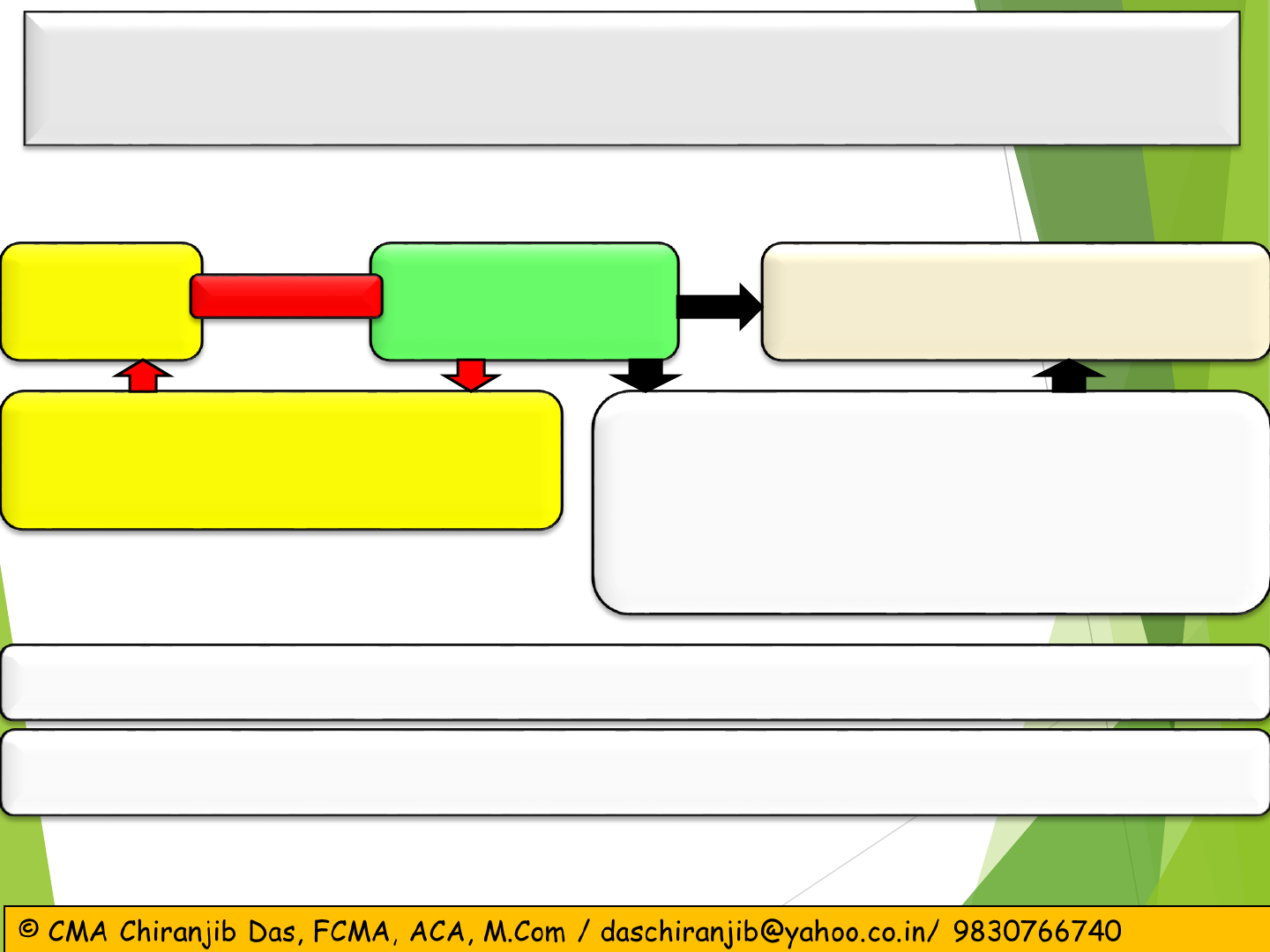
J Inc. Korea
CD Ltd. India
(Mfg. of Cell Phones)
2,50,000 UNITS SOLD @ Rs.3,000 each
A.E.
A Ltd. Nepal
( Un related Buyer)
35,000 UNITS SOLD @ Rs.5,800 each
Less: Adjustments for:
Freight Rs. 700
Warranty Rs. 500
Qty.Discount Rs. 200
ARM’S LENGTH PRICE Rs. 4,400
Difference in Price = Excess of ALP over Sale Price to A.E.= Rs.(4,400-3,000) =Rs.1,400 per unit
Undisclosed Income = Units Sold to A.E. x Difference in Price
= 2,50,000 units x Rs.1,400 per unit = Rs.35 crores
COMPARABLE UNCONTROLLED PRICE METHOD
(CUP)
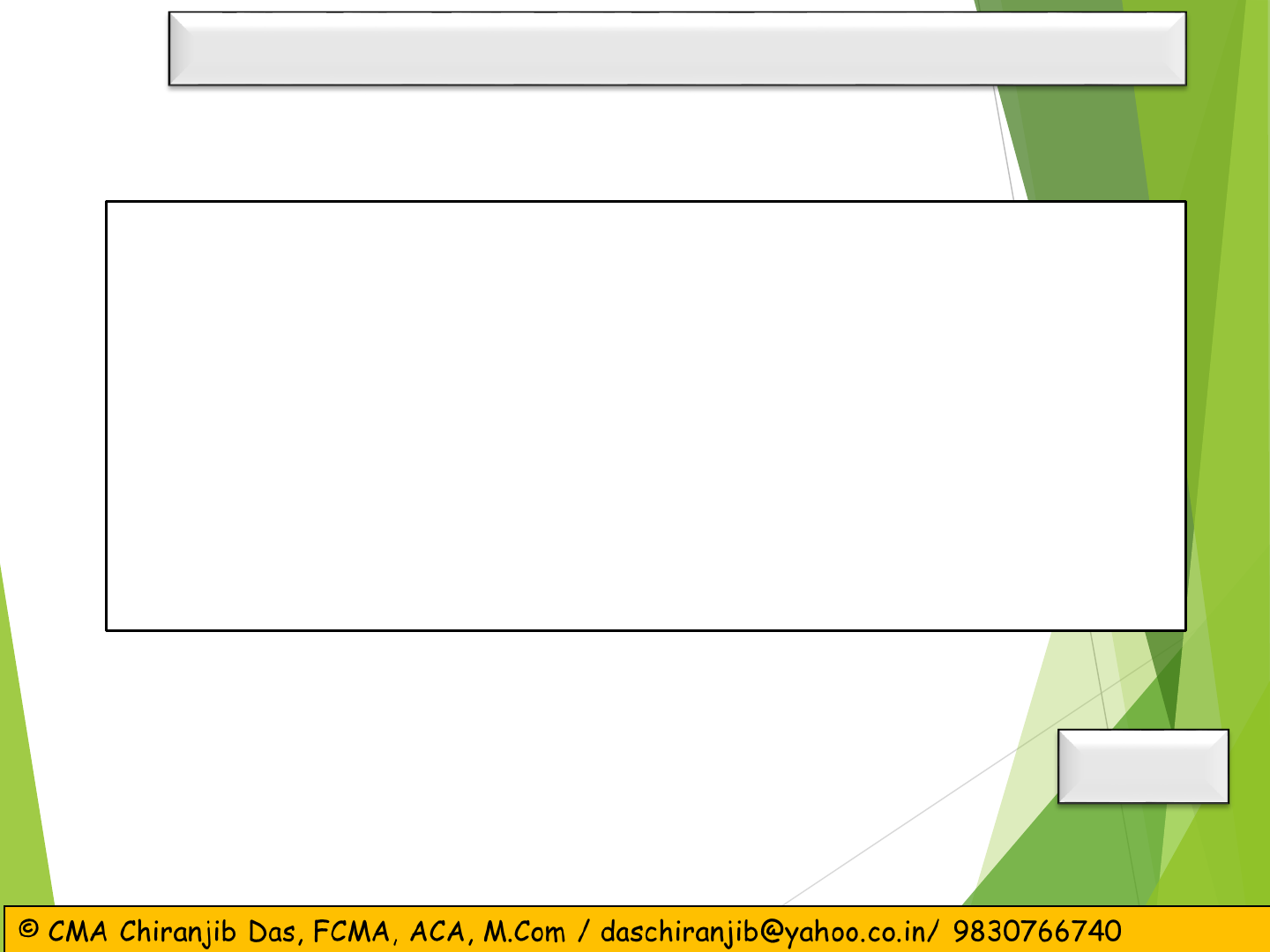
RESALE PRICE METHOD (RPM)
Case Study:
(i) Mega Inc.(France) & R Ltd (India) are AEs; (ii) R Ltd. imports 3,000
compressors from Mega Inc.@ Rs.7,500 per unit and sold to Pleasure
Cooling Solutions @ Rs.11,000 p.u. (iii) R Ltd. also imported similar
products from Cold Inc. Poland and sold outside @ 20% G.P. on sales.
(iv) Quantity Discount : Mega Inc.(France) @ Rs.1,500 per unit; Cold
Inc. @ Rs.500 p.u. (v) Freight Charges paid by R Ltd -imports from
:Mega Inc. Rs. 1,200 p.u.; Cold Inc. Rs.200 p.u.
Cont…

RESALE PRICE METHOD (RPM)
Mega Inc. France
R Ltd. India
(Mnf. Of Compressor)
Cold Inc. Poland
Sale Price to Pleasure Cooling @ Rs.11,000
Less: Gross Profit @ 20% of Rs.11,000 Rs. 2,200
Less: Savings in Freight Cost (Rs.1,200 – Rs.200) Rs. 1,000
Less: Diff.in Qty.Disc (Rs.1,500 – Rs.500) Rs. 1,000
ARM’S LENGTH PRICE Rs. 6,800
3,000 units of compressor imported @ Rs.7,500 per unit
(paid by R Ltd)
Price Comparable to ALP = Rs.7,500 per unit
Foreign Supplier of Compressors to R Ltd.
Difference in Price = Excess of Price paid to A.E. & ALP = Rs.(7,500 -6,800) =Rs.700 per unit
Undisclosed Income = Units Purchased from A.E. x Difference in Price
= 3,000 units x Rs.700 per unit = Rs.21 lakhs

COST PLUS METHOD (CPM)
Case Study
(i) Branco Inc.(UK) & C Ltd. (India), a software development company, are AEs;
(ii) C Ltd. spent 2,400 man hours in Branco Inc. and billed @ Rs.1,300 per man-hr
, actual cost incurred Rs.20 lakhs; (iii) C Ltd. also provided service to Harsha Ltd
@ Rs.2,700 per man-hr and made a gross profit of 60% ; (iv) Branch Inc. provides
technical support to C Ltd., valued at 8% of normal gross profit (v) Quantity
Discount to Branco Inc. @ 14% of normal gross profit; (vi) C Ltd. also offered 90
days credit to Branco Inc. which is equal to 2% of normal gross profits.
Cont…

COST PLUS METHOD (CPM)
Branco Inc. ( UK)
C Ltd. India
(Software Developer)
A.E.
Harsha Ltd
( Un-related Buyer)
Service provided for 2,400 man hours @ Rs.1,300
Actual Job Cost incurred by C Ltd Rs.20 lakhs
Rate per Man hr @Rs.2,700
Gross Margin (%) 60.00
Less: Cost not to be taken
Tech. Know How (i) 4.80
Qty.disc. (ii) 8.40
Add: Gain to be further added back:
Credit 1.20
Adjusted Gross Profit Margin (%) 48.00
COST TAKEN IN ACCOUNT(%) [in terms of Harsha Ltd]
(i) Tech. Knowhow- 8% on 60%= 4.8%
(ii) Qty.disc- 14% on 60%=8.4%
(iii) Gain included 2% on 60%=1.2%
COMPUTATION
OF INCREASE IN TOTAL INCOME OF CTL ( for services rendered to
Branco
Inc
. (UK))
%
Amount (Rs.)
Cost
Adjusted
Gross Profit Margin
Arm’s
Length Price ( Billed value at arms length [ cost/(100-arms length mark)]= Rs.20,00,000
/
(
100% -48%)
Less
: Actual Billing to Branch Inc.
52.00
48.00
100.00
20,00,000
18,46,154
38,46,154
31,20,000
Increase
in Total Income of Branco Inc.
7,26,154

PROFIT SPLIT METHOD (PSM)
Case Study:
(i) NBR Inc.(Canada) received order from Healthy Recovery Group of Hospitals (UK) for
rendering of specialised services. Order value Euro 3,00,000; (ii) NBR Inc. joined hands
with its subsidiary PC Inc.(USA) and B Ltd.(India); (iii) PC Inc. holds 30% shares in B Ltd;
(iv) NBR Inc. paid to: PC Inc Euro 90,000 and B Ltd. Euro 1,00,000; (v) Profit earned Euro
1,00,000 (vi) Total Cost of B Ltd for execution of its work in the above contract Euro
80,000; (vii) Relative contribution of NBR, PCI & B Ltd. are 30%, 30% and 40%
respectively.
Cont…
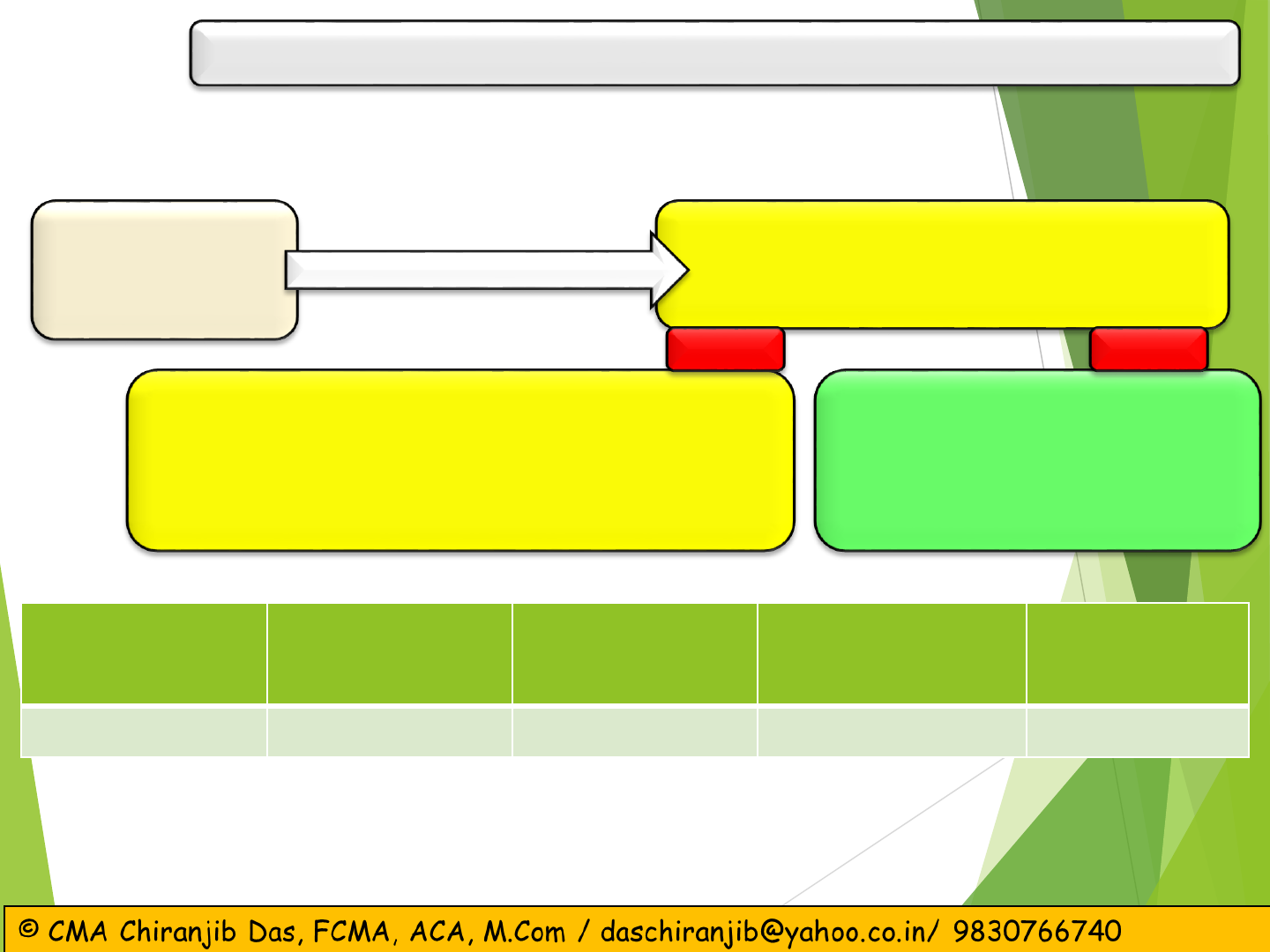
PROFIT SPLIT METHOD (PSM)
PC Inc., USA [ Cont:30%]
Received from NBR Inc. = Euro 90,000
B Ltd.India [ Cont:40%]
Received from NBR Inc:
Euro 1,00,000
NBR Inc.,Canada
Cont: 30%
Healthy
Recovery
Hospitals, UK
Order for 3 lac Euro
Total Cost of B
Ltd
Share of Profit
from NBR Inc.
Canada
Arm’s Length
Price
Receipt of B L td.
from Canada
Undisclosed
Income
80,000 40,000 1,20,000 1,00,000 20,000
A.E. A.E.
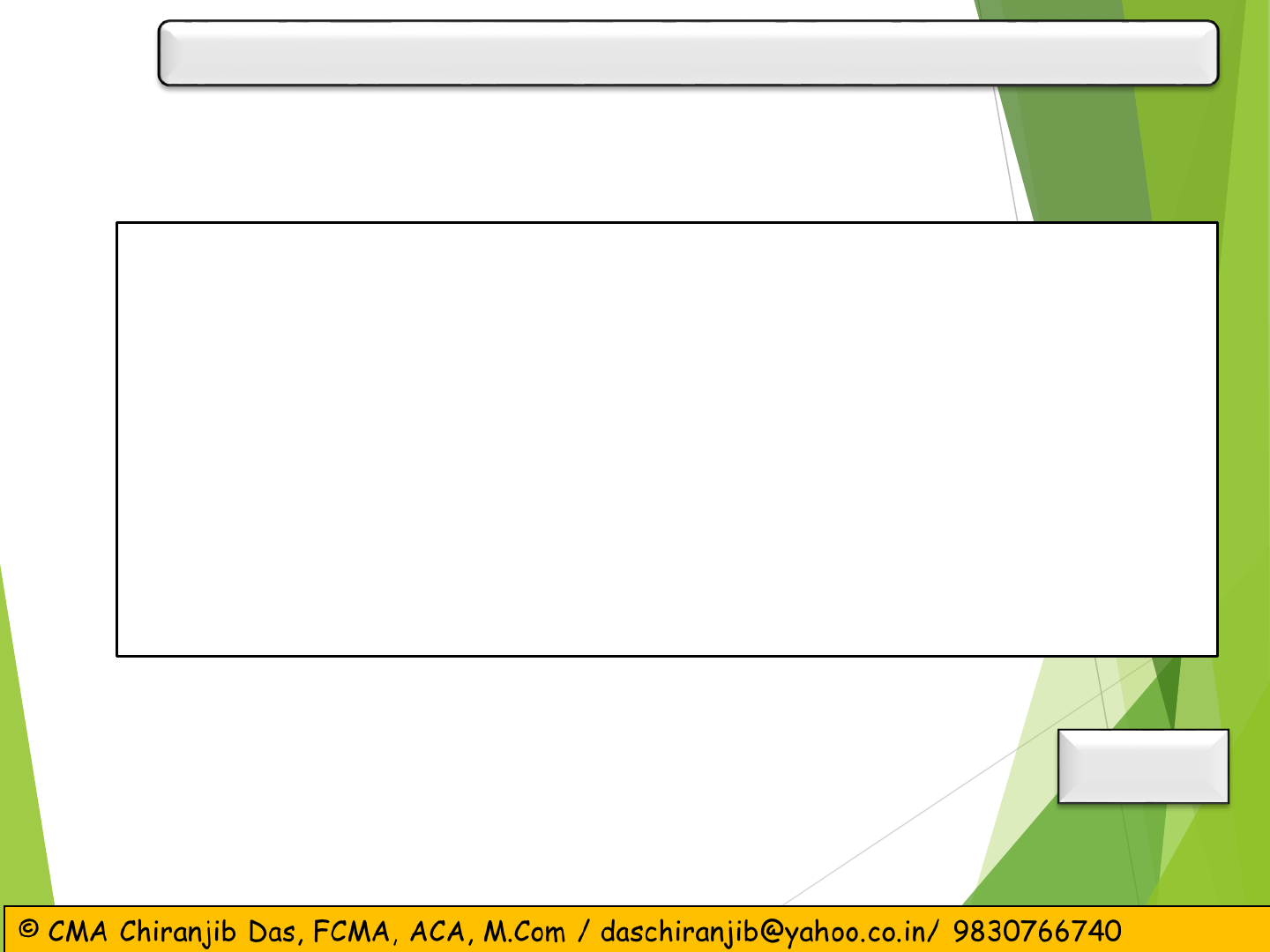
TRANSACTION NET MARGIN METHOD(TNMM)
Case Study:
(i) Fox Solutions Inc. (USA) sells laser printer cartridge drum to its Indian subsidiary
“Quality Printing Ltd” @ $ 20 per drum ; (ii) Fox Solutions has other takers in India for @ $
30 per drum (iii) Fox Solutions Inc. supplied 12,000 of such items to Quality Printing Ltd.
(iv) Taxable Income of “Quality Printing Ltd” is Rs.45,00,000 (v) $ = Rs. 45
Cont…

Fox Solutions Inc. (USA) ( seller of laser printer cartridge drums)
Quality Printing Ltd.
Profit Reduced Due to Excess Cost charged in Profit & Loss Account in
Comparable Transaction
=Units Purchased x Difference in Price x Conversion Rate
=12,000 units x $(40-30) x Rs.45= Rs.54 lakhs
Other Un-related Buyers in India
Purchased from Fox Solutions Inc.
@ $ 30 per unit
Quality Printing Ltd (India)
Purchased from Fox Solutions Inc.
12,000 units @ $ 40
TRANSACTION NET MARGIN METHOD(TNMM)
A.E.
Assessed Total Income = Income declared + Increase in income after adjustment of ALP
= Rs.(45 + 54) lakhs = Rs.99 lakhs.

Under Pre-GST regime Vs. Transfer Pricing
Pre
-GST Indirect Tax Regime Vs. Transfer Pricing
( Under Income Tax)
Transaction
Customs/
Service
Tax Valuation
Transfer Pricing
(Income Tax)
Import of Goods
Yes
Yes
Import of
Services
No
Yes
Excise / Service Tax
Valuation
Domestic goods
Yes
Yes (restricted to profit linked
transactions)
Domestic
Services
No
Yes (restricted
to profit linked
transactions)
TRANSFER PRICING – under Indirect Taxation

GST Vs. Transfer Pricing regime
GST Vs.
Transfer Pricing ( Under Income Tax)
Transactions
Customs
Valuation
(BCD)
GST
Valuation
(IGST)
Transfer Pricing
(Income Tax)
Import of Goods
Yes
Yes
Yes
Import of
Services
No
yes
Yes
Domestic Goods
Yes
Yes
Yes (restricted to profit
linked
transactions)
Domestic
Services
No
Yes
Yes (restricted to profit
linked transactions)

GST and Transfer Pricing – Expectation of Taxpayers
Harmonisation –
GST framework governing arms’ length standard would
need to be aligned with the Income Tax Provisions
Methodologies to be adopted
Nature of documentation to be maintained
Process to identify comparable data
Reliance to be placed on the comparable data
Section 15 of the CGST Act, 2017 – Valuation
Read with Valuation Rules
( as prescribed in Rules 27 – 35 of the CGST Rules, 2017)

APA (Advanced Pricing Agreement) & Transfer Pricing
Is the TP Study or an APA alone viewed by the
Customs Authorities as sufficient to support the use
of the transaction value method of customs valuation?
- APA/ TP may contain useful information for
supporting the transaction value method.

Transfer Pricing – Issues & Concerns
Is it possible to get the customs and tax authorities
agree on the same price
( = the price paid or payable, exclusive of freight,
insurance and other additions to the price) for
corporate tax and customs duties purposes ?

Transfer Pricing – Issues & Concerns
In practice, what evidence do the customs authorities
require to substantiate that the related party price is
acceptable from a customs perspective ? Is it
recommended to conduct a test and/ or analysis under
the customs rules ( which would be a separate test/
analysis from the transfer pricing analysis) ?
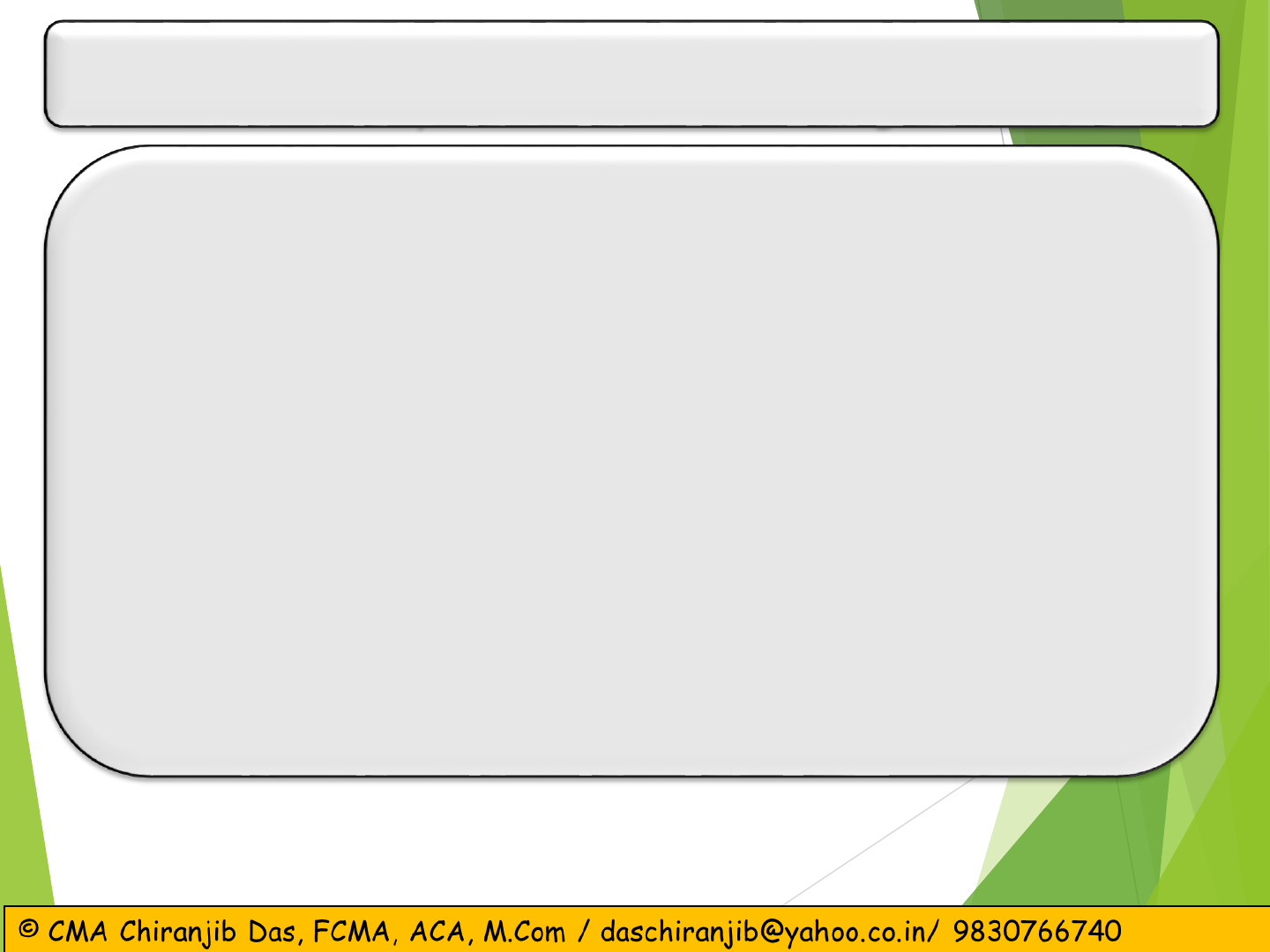
Customs Valuation – Post importation changes & its
impact on Transfer Pricing
Are importers required to report to Customs
Authorities on any post-importation change in the
reported customs value (e.g. due to a retroactive
transfer pricing adjustment) that increases the price
paid / payable by the importer ?
If yes, is there an exception to report when the duty
rate is zero ?
If no, is there still a risk of fines or penalties ?

Customs Valuation – Post importation changes & its
impact on Transfer Pricing
Are importers required to report to Customs
Authorities on any post-importation change in the
reported customs value (e.g. due to a retroactive
transfer pricing adjustment) that increases/
decreases the price paid / payable by the importer ?
If yes, is there an exception to report when the duty
rate is zero ?
If no, is there still a risk of fines or penalties ?

Inventory Valuation & Transfer Pricing
Does the income tax laws or practices in the country
require (for corporate income tax purposes)
consistency between a tax payer’s inventory basis
( cost of goods sold) and values reported for customs
purposes ?
If such amounts are not consistent, what are the
potential risks ?
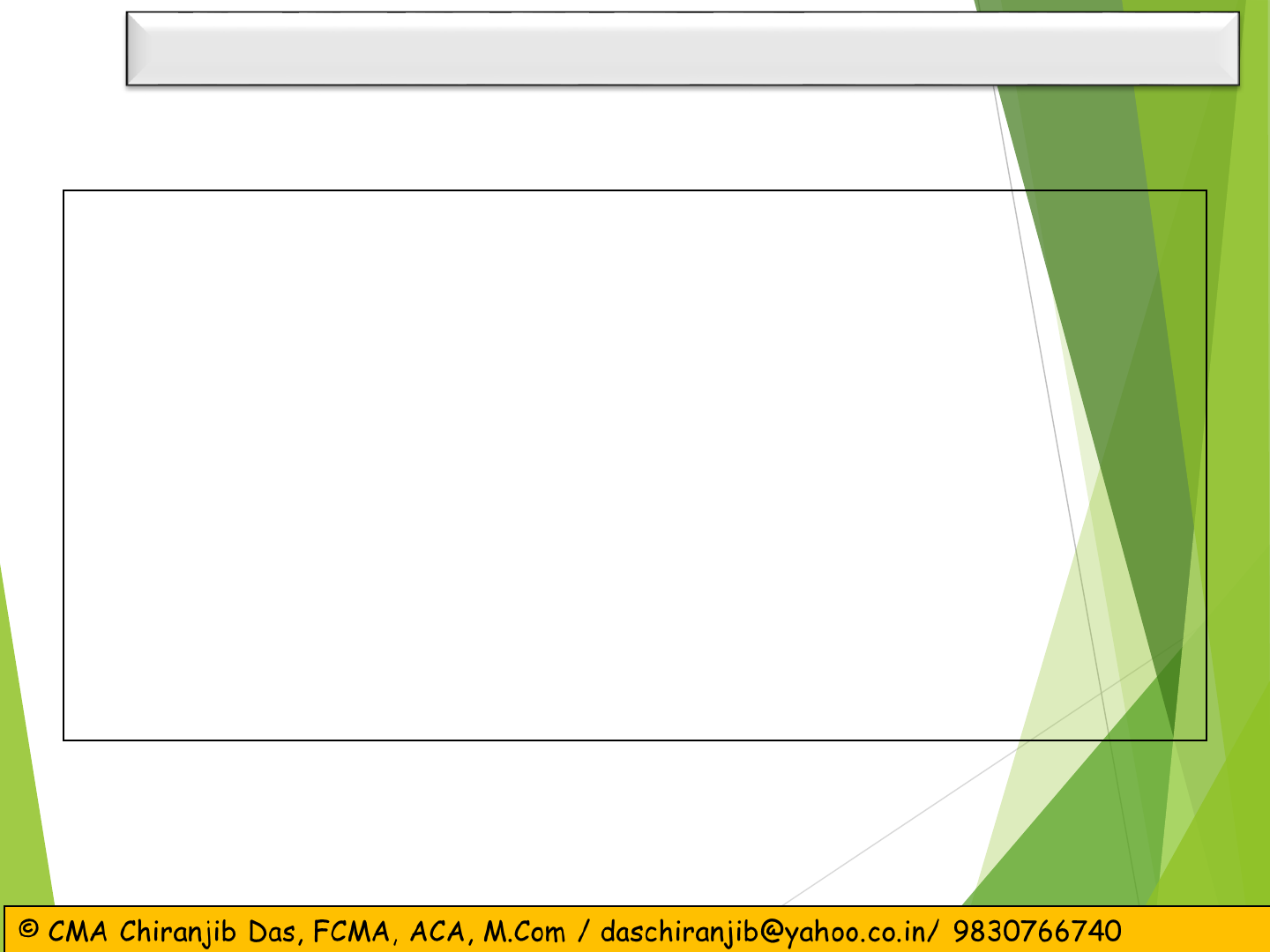
Anti Dumping… a quick look….
Anti Dumping takes its reference and powers from Customs Laws
It is similar to determining the Arm’s Length Price which is applied in case
of
both International and Specified Domestic Transactions
With the Assessed Value/ Value as determined, the difference over the
normal
value is considered to be the quantum of dumping
on the quantum of dumping - duty of customs is imposed under the title ‘Anti
-
dumping’
This provides a relief to the domestic industry from being affected by injury
due
to price of imports which are at a price lower than the normal value of
identical
/like goods in the domestic market

Trade Remedy Measures
– Relief to Domestic Industries
Relief to Domestic
Industries
Trade Remedy Measures (Imposing
duties of customs )
Anti-dumping Duty Countervailing Duty Safeguard Duty
Price Undertakings
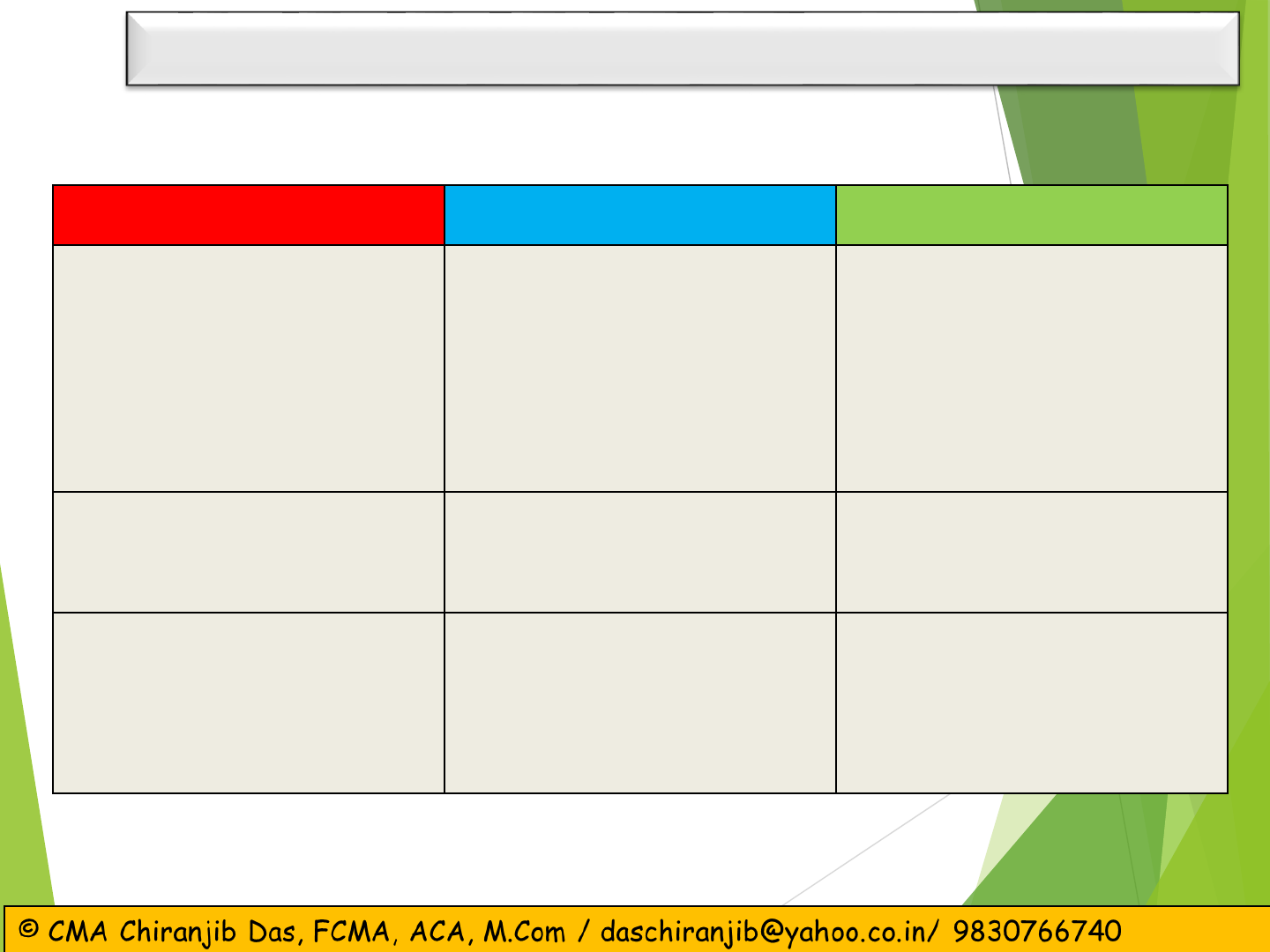
Comparative Analysis – AD/CD/SD
Anti Dumping Countervailing Duty Safeguard Duty
Product
specific
and
Exporter
Specific Duty
Product
specific
and
Country
specific duty
Product
specific
duty
imposed
against
imports
coming
from all
sources
irrespective
of
exporter
and
country of origin
Continue
forever as long
as
dumping
continues
Continue
forever as long
as
subsidy
continues
Continue
only for
a
temporary
period
not
exceeding
10 years
There
is an alleged foul
play
on
the part of the exporter
There
is an alleged foul
play
on
the part of
the
exporting
country
No
alleged foul play on
the
part
of exporter
or
exporting
country in case
of
safeguards
duty

Cost Accounting Standards – relevance in AD Study
Anti-dumping Application
Proforma
Reference to Para prescribed under Cost Audit
Report Rules,2011
Reference to relevant Cost
Accounting Standards
Format A
- Statement of Raw
Materials and Packing Materials
Consumption and Reconciliation
Para 5 :
Abridged Cost
Statement
Item No.1 & 2
Raw Material Consumption and
Process Materials
CAS 6
– Material Cost
Item No.16 and 23
– Primary
Packing Cost Material and
Secondary Packing Cost
CAS 9
– Packing Material Cost
Format B
– Statement of Raw
Material Consumption
Para 5 : Abridged Cost Statement
– Item Nos.1 & 2
CAS
– 6 – Material Cost
Format CI
– Statement of Cost of
Production
(to be certified by a Cost
Accountant in Practice)
Para 5 : Abridged Cost Statement
– Item No. 21 –
Cost of Production
CAS 2
– Capacity Determination
CAS 6
– Material Cost
CAS 7
– Employee Cost
CAS 8
– Cost of Utilities
CAS 9
– Packing Material Cost
CAS 10
– Direct Expenses
CAS 12
– Repairs & Maintenance
Format CII
– Allocation and
Apportionment of Expenditure
Para 2 : Cost Accounting Policy
CAS 1
– Classification of Cost
CAS 2
– Capacity Determination
CAS 3
- Overheads
Format D
– Statement of
Consumption of Utilities
Para 5: Abridged Cost Statement
– Item No.3 –
Utilities
CAS 8
– Cost of Utilities

Installed Capacity
1,00,000 units
Production in Installed
65,000 units
Capacity Utilization (%)
65%
Production in Investigation Period
56,000 units
Capacity Utilisation in Investigation period
56%
Sales (quantity)
61,000 units
51,000 units
Particulars
Previous Accounting Year Investigating Period
Qty Rate
(Rs.)
Value
(Rs.)
Cost
per unit
(Rs.)
Qty Rate
(Rs.)
Value
(Rs.)
Cost
per unit
(Rs.)
Manufacturing Expenses:
Raw Materials (specify the major raw
materials) (MT)
Utilities
Depreciation
Others (specify nature of expenditure)
10,000
100.00
10,00,000
2,00,000
1,95,000
15.38
3.08
3.00
8,000
120.00
9,60,000
1,90,000
1,75,000
17.14
3.39
3.13
Administrative Expenses
Variable
Fixed
1,30,000
78,000
2.00
1.20
1,12,000
78,000
2.00
1.39
Selling & Distribution Expenses
Variable
Fixed
61,000
40,000
1.00
0.66
56,000
40,000
1.00
0.71
Financial Expenses
Variable
Fixed
1,30,000
21,000
0.70
0.32
35,700
21,000
0.70
0.38
Less: Miscellaneous Income
( from product concerned)
–
Sale of Scrap
raw materials
(25,000)
(20,000)
Total Cost to make and sell
18,34,000
28.22
16,47,700
29.42
Selling Price
35.00
32.00
Profit/Loss
6.78
2.58
Example: FORMAT “CI” - STATEMENT OF COST OF PRODUCTION - Name of the Company: XYZ Limited
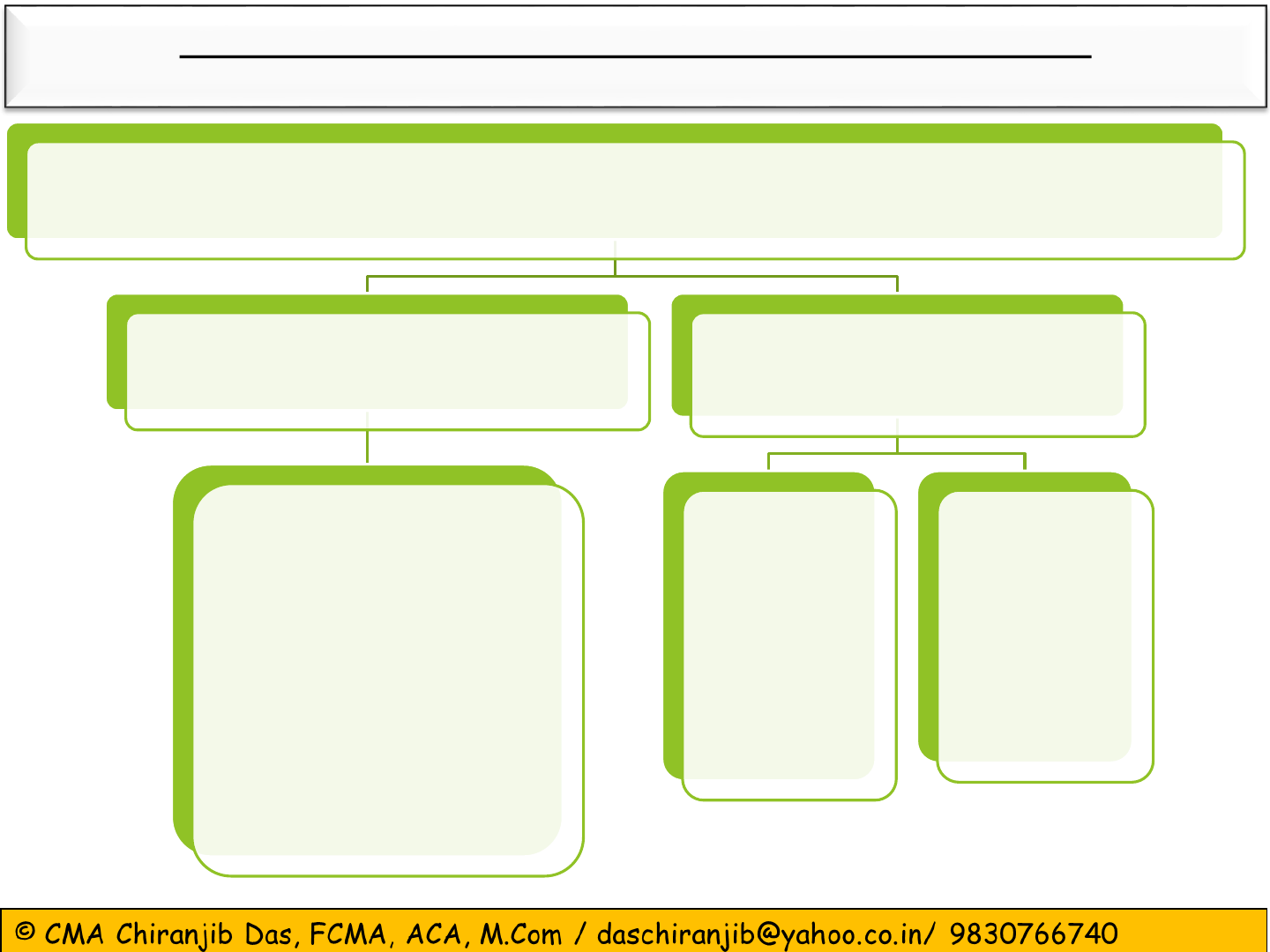
37
Role of CMAs in Goods and Services Tax (GST) in India
Role of CMAs in GST – as per Draft Report of Dr. J.P Verma Committee in 2002, CMAs were recommended & recognised to conduct
Transer Pricing Audits
Towards Taxable Persons / Business Entities
- Advising in maintenance of Proper
Records & documents leading to
support TP adjudications
- Determination of Price/ Value for the
purpose of Transfer between related
parties
- Preventing Litigation
- Defending Litigation
Government
Advisory in Advance
Pricing/ Valuation /
Anti-Profiteering
Facilitating in TP
Adjudication & TP
Audits – to serve the
National Interest

Valuation : Anti-Profiteering under GST & Transfer
Pricing
- Nexus between Anti-profiteering under GST
& Valuations involving Transfer Pricing

